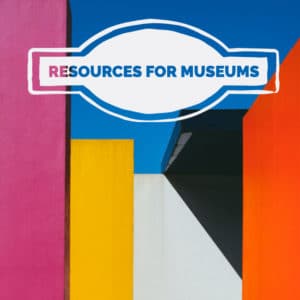 Museums and historic sites have a responsibility to be sensitive to the stories they tell and inclusive in the audiences they engage. Although we know our partners have taken conscious steps to bring greater diversity to their programs and exhibits, we can, and should, always do more. Below are links and information shared from our two of our primary resource providers, American Association for State and Local History and American Alliance of Museums, on how historical and cultural organizations can prioritize the inclusion of underrepresented and marginalized communities.
Museums and historic sites have a responsibility to be sensitive to the stories they tell and inclusive in the audiences they engage. Although we know our partners have taken conscious steps to bring greater diversity to their programs and exhibits, we can, and should, always do more. Below are links and information shared from our two of our primary resource providers, American Association for State and Local History and American Alliance of Museums, on how historical and cultural organizations can prioritize the inclusion of underrepresented and marginalized communities.
American Association for State and Local History (AASLH)
Recorded Webinar: AASLH Conversations: Inclusivity During COVID-19, and Beyond
As museums and historic sites across the country grapple with the continued impact of the Corvid-19 pandemic, organizational personnel have to make difficult decisions. Unfortunately, stressful situations often cause even the most intentional and well-meaning decision-makers to fall into patterns of bias and exclusion. The webinar will provide a thoughtful discussion about approaches to ensure that inclusion continues to remain a business imperative.
Recorded Webinar: Cultivating Diversity and Inclusion at Museum and Historic Sites
Cultivating Diversity and Inclusion at Museum and Historic Sites is an AASLH Continuing Education recorded webinar. This webinar is about strategies for museums professionals to demonstrate cultural competency on multiple levels in order to help create a place for underrepresented communities at the museum table. This event is presented by Monica O. Montgomery. Museums and other history-minded institutions have the ability to connect a number of people–visitors, staff, volunteers, and stakeholders– in a variety of different ways. But how can we make sure that all of the communities we serve, or want to serve, see themselves in both our exhibitions and learning opportunities and as content creators? The webinar will provide strategies for museums professionals to demonstrate cultural competency on multiple levels in order to help create a place for underrepresented communities at the museum table.
Technical Leaflet 274: Incorporating Diversity/Inclusion in Young Adult Programs
Incorporating Diversity/Inclusion in Young Adult Programs is an AASLH Technical Leaflet. AASLH Technical Leaflets are brief, practical guides on how to do history. Technical Leaflet #274 by Dina Bailey, Chris Taylor, and Elizabeth Pickard tackles the possibilities and pitfalls of creating inclusive programming for young adults. Working with young adults can be a successful way to cultivate a new, more diverse generation of museum professionals. And the addition of inclusion in these programs is essential to the organization’s success and to the future of the museum field.
Engaging Descendant Communities in the Interpretation of Slavery: A Rubric of Best Practices is an AASLH Technical Leaflet. AASLH Technical Leaflets are brief, practical guides on how to do history. Technical Leaflet #285 contains a rubric developed by the National Summit on Teaching Slavery to provide institutions with guidance in the meaningful and ethical interpretation of the topic of slavery.
The Inclusive Historian’s Handbook
This dynamic reference source supports inclusive and equity-focused historical work in public settings by:
- Sharing a knowledge base that invites more people to engage in history projects.
- Providing concrete examples of how to make history work more relevant.
- Centering equity, inclusivity, diversity, and public service.
- Offering accessible windows into the many ways public historians work.
The Handbook is for individuals and groups engaged in historical work in a wide range of settings—not just paid professionals or academic scholars. It is intended to provide community groups, educators, museum professionals (paid and unpaid), students, scholars, activists, historical societies, preservationists, archivists, and others with easy-to-find information that is directly applicable to inclusive history practice.
American Alliance of Museums (AAM)
Recorded Webinar: Racism, Unrest, and the Role of the Museum Field
On June 3, attendees of the AAM Virtual Annual Meeting & MuseumExpo came together to hear from Dr. Johnnetta B. Cole, Secretary Lonnie G. Bunch III, and Lori Fogarty on the museum field’s role in combating racism. In the heat of the country’s reckoning with police killings of Black people, the conversation was an opportunity to come together as a community and listen to these powerful voices discuss how we can rebuild our field and our society for the better. This conversation is now available to all, in recognition of its urgent value to museum institutions and professionals.
Since they are too numerous to list here, you can also find a large centralized collection of resources, including thought-provoking blog posts and articles, from the American Alliance of Museums about Diversity, Equity, Accessibility, and Inclusion.
The Four Rivers Heritage Area is committed to supporting our partners as they pursue their goals to better reflect the complete histories and diverse voices of our community.
